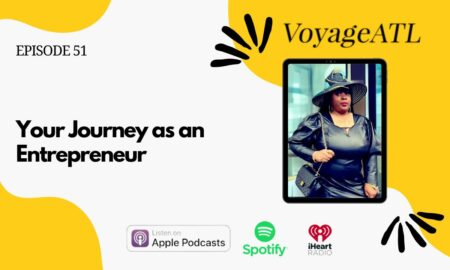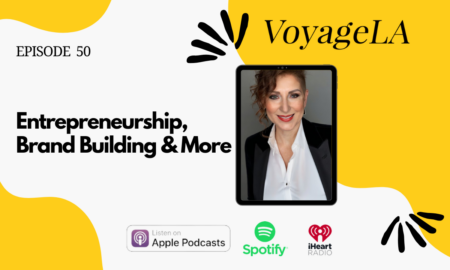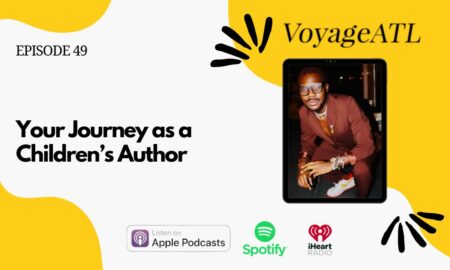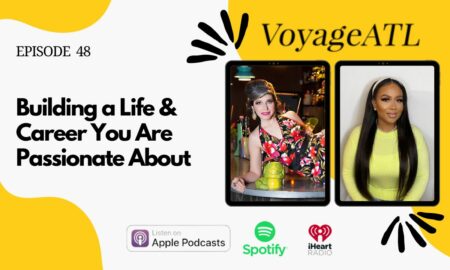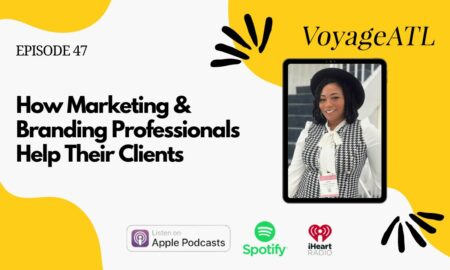 Today, we’d like to introduce you to Shabeha Haque.
Today, we’d like to introduce you to Shabeha Haque.
Shabeha, let’s start with your story. We’d love to hear how you got started and how the journey has been so far.
My childhood in Atlanta was an amalgamation of different cultures. By the age of eight, I was fluent in Bangla and Spanish. By the age of 13, I was reading Russian literature, eating tamales, and attending quinceaneras. With my conservative Bangladeshi upbringing paired with my multicultural environment, I was able to create a new identity centered around diversity. I quickly realized how different I was from my peers who had a more conventional and less confusing childhood, but it wasn’t until years later until I realized the value of it all. While living in that immigrant neighborhood, surrounded by the finest real estate in metro Atlanta, I was able to leverage my unique experiences in an impactful way.
My path to impact was forged when I realized my role in my community. I lived in a low-income neighborhood in one of the most affluent areas of the city. On one side, less than two miles away, I had friends who lived in million-dollar homes and went on regular vacations with their families, and on the other side, my neighbors were working 16-hour shifts trying to make ends meet. These differences in lifestyle made me realize the disparities that we, as an immigrant community, face on a daily basis and how they play a critical role in our long-term health and life outcomes. However, living in a diverse community allowed me to build deep connections with my neighbors and helped me embrace different aspects of the cultures around me. Thus, finding myself in different positions working with young people and influencing them to overcome systemic barriers.
One of the first ways I began to engage with my community was when I started an after school tutoring program, where I helped young kids in my community with their homework. Having the ability to speak Spanish, English, and Bangla enabled me to explain school-related concepts to the students that were not clear to them. A few years later, I co-founded and was the Vice President of the first Hispanic Organization Promoting Education (HoPe) in the City of Atlanta. HoPe’s mission statement is to help raise the graduation rate for Latino students through academics, community service, and leadership. After working with my school’s Latinx population and also within my community, I quickly earned the trust of both the students and their parents. Like my community, I could see the parallel mission of HoPe in the way that it prioritized education in the Latinx community. Within one year of establishing HoPe at North Atlanta High School, the graduating class was not only the largest but comprised of the largest Latinx population to graduate in the history of the school. Witnessing the drastic results that the organization created gave me hope and enabled me to discover my true passion – teaching and education policy.
My most significant contribution to HoPe was my ability to act as a bridge between the more privileged and less privileged groups that coexisted in North Atlanta and the greater Atlanta community. With that in mind, I decided to leave Atlanta for my undergraduate studies at The George Washington University. In DC, I continued to use my strengths to build underrepresented communities. I joined the program board so I could speak on behalf of those communities without a voice and was able to launch programming aimed to build those communities more. I then began to notice a common theme in the issues I was passionate about — education for minority communities. As a child, I saw the impact education had on students. I saw it as the greatest equalizer. Knowing that and knowing my strengths in building trust and fostering a stronger community, I decided that I wanted to become a teacher. I applied for Teach for America as a way to gain that practical experience needed to be an effective community leader. Today, I have had the privilege to work at local elementary schools, was the Co-Author of a children’s book, interned for the honorable Congressman John Lewis in Washington D.C., and accepted my offer as an upcoming Teach For America corps member in Dallas, Texas. I am excited to continue to fight against education inequality for immigrant communities, but also amplify the voices of those who are often unheard.
We’re always bombarded by how great it is to pursue your passion, etc – but we’ve spoken with enough people to know that it’s not always easy. Overall, would you say things have been easy for you?
Most of my “struggles” stemmed from my perception of identity. Like many first-generation immigrants, it is difficult to fully embody what it truly means to live the “best of both worlds”– or, in my case, “best of three worlds.” My Bangladeshi/Muslim background as an American living in a predominantly Mexican community complicated what it meant to be a student, woman, and professional. Though there were many perks of having such a “global” perspective on life, I found myself struggling to fully understand how all three of my identities functioned to form one single global identity.
In a society where we put people in categories based on race, ethnicity, religion, class, etc. I found myself over-explaining experiences because of where I come from in Atlanta. Today, I continue to learn about my identities and how they function together, knowing that I am happy with the person I am. Being content with who I am helps me be more aware of society’s perceptions. Today, I care less about my perceptions of what I “should” be and focus my energy on who I already am. Through struggles and moments of adversity that were prevalent in my life (like they are in all of our lives), I always reminded myself of how far I have come and where I hope to go.
What has been the proudest moment of your career so far?
As a student, I have had the privilege to learn about academic theories and concepts in an intellectually charged space where students can collectively think and grow. In my Black Feminist Theory class, I learned about how black women leaders are often under-taught and under praised when learning about other influential black leaders in a K-12 public school education. This inspired me along with my teammates Desi Warren, Kevin Blanks, and Evelyn Ramirez to create a children’s book that highlights influential black women of the past and present to inspire black women and girls to be the influential black women of the future. This children’s book was written, edited, and illustrated by our team and will be printed and distributed to local schools in the Atlanta, D.C, and Dallas area. This is by far one of the proudest moments of my career because my teammates and I created a platform to make a social action project that would impact black girls around the country by showcasing women who are often not taught about and using these narratives to inspire both girls and boys to strive for greatness regardless of the obstacles that may come their way.
Contact Info:
- Email: shaque43@gwu.edu
- Instagram: sabsss___




 Image Credit:
Image Credit:
@HoPe_Nahs Instagram
Suggest a story: VoyageATL is built on recommendations from the community; it’s how we uncover hidden gems, so if you or someone you know deserves recognition please let us know here.















